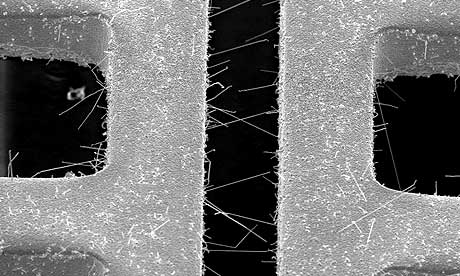I'm doing alot of damn bucker leads and tinning ends is really slow and boring, anyone use a solder pot? What wattage etc. is good?
Announcement
Collapse
No announcement yet.
Solder pots....good or bad?
Collapse
X
-
Tags: None
-
Not knowing how many buckers' leads you need to tin at one time,Originally posted by Possum View PostI'm doing alot of damn bucker leads and tinning ends is really slow and boring, anyone use a solder pot? What wattage etc. is good?
I would guess that any 100 to 250 watt pot with a below one pound
capacity would do the job.
It should have some kind of temperature control since you may
need to do RoHS solder dips at some point.
The $30 Tenma 150W solder pot, while inexpensive, has no temp control.
The fixed temperature Hexacons, while well-made and inexpensive,
have only 1 ounce wells and may not let you do large batches of wire.
That leaves $Plato$, American Beauty, Hakko, Esico, and Goot.
The Plato units, while expensive, will outlast you.
The small Goot units are worth a look; at 100g and 300g (~3oz, ~10oz)
capacities, thermostat'ed, ready for RoHS solders, and cost about $120.
http://www.howardelectronics.com/goot/products.html
-drh"Det var helt Texas" is written Nowegian meaning "that's totally Texas." When spoken, it means "that's crazy."
-
....
What about the lead free solder pots on Ebay for cheap? Can a lead free pot be used with leaded solder?http://www.SDpickups.com
Stephens Design Pickups
Comment
-
If it's the right size, sure.Originally posted by Possum View PostWhat about the lead free solder pots on Ebay for cheap? Can a lead free pot be used with leaded solder?
A 1+ pound pot takes longer to heat up,
and you can tin a lot of pickup leads with 3 oz of solder.
Unless the pot is stainless steel, ceramic or has a replaceable pan,
once it's used for leaded solder, it is no longer RoHS-compliant.
How many pickups do you tin in one sitting?
-drh"Det var helt Texas" is written Nowegian meaning "that's totally Texas." When spoken, it means "that's crazy."
Comment
-
Tin whiskers aren't just because of lead contamination. I used to work at Rodgers Instruments LLC until the end of January. They're owned by the Roland Corporation, and they sell organs worldwide. They had to drop their warranty from 50 years to 10 years with the advent of ROHS and non-lead solder. Tin whiskers happen without the lead in there and with the application of electric current, and pretty much anything with non-lead solder will probably stop working in 10 years or less....VCR's, DVDs, TV's, Computers, etc. The non-lead solder doesn't work very well either as compared to leaded solder....you need higher temps and you can't tell visually if you have a good solder joint anymore. The amount of lead that leaches into ground water from circuit boards is pretty dang small too.....they should have instituted better recycling instead of banning leaded solder. Wonderful sometimes what government pushes onto people.....Originally posted by David King View PostGood point about RoHS. Any lead contamination in your lead free solder can also cause problems with tin whiskers over time apparently. The rules are very clear about replacing all leaded equipments with dedicated lead-free equipment.
Dave, I really wish I had a solder pot myself, and thats just for my amp work...of which I don't do a ton. For what you're doing a solder pot would really save you time. Definitly get one with a temperature contro. They're more expensive at the outset but they will last a lot longer and work much better too.
Greg
Comment
-
[QUOTE=David King;98029]Any lead contamination in your lead free solder can also cause problems with tin whiskers over time apparently.[QUOTE]
Don't wanna come off sounding like a DA but what are tin whiskers?
Comment
-
[QUOTE=black_labb;98072][QUOTE=Stan H;98068]I have four cats...there are tin whiskers ALL OVER THE PLACE!!!Originally posted by David King View PostAny lead contamination in your lead free solder can also cause problems with tin whiskers over time apparently.

+




Comment
-
let's review the funny words in this thread;
American Beauty
Goot
tin whiskers
 Goot. lol
Goot. lol
Seriously though, I want a solder pot now! I hate tinning leads.
And Dan, you jarred my memory when you said Hexacon... I was trying to remember what kind of soldering station I used to have in that other thread.It would be possible to describe everything scientifically, but it would make no sense; it would be without meaning, as if you described a Beethoven symphony as a variation of wave pressure. — Albert Einstein
http://coneyislandguitars.com
www.soundcloud.com/davidravenmoon
Comment
-
Tin whiskers are basically just like rust, but on an electrical connection. They grow just like rust does too. Eventually with enough of it, no more working electrical contacts at that connection point. Obviously that could be problematic for electrical equipment....
Greg
P.S. Keep solder away from your cats....
Comment
-
...
will lead eat through the stainless containers on these rohs solder pots on ebay?http://www.SDpickups.com
Stephens Design Pickups
Comment
-
Nope. *If you can't solder to it, the solder can't alloy with it.Originally posted by Possum View Postwill lead eat through the stainless containers on these rohs solder pots on ebay?
-drh"Det var helt Texas" is written Nowegian meaning "that's totally Texas." When spoken, it means "that's crazy."
Comment
-
Tin whiskers cause short circuits on close pitch components. Wiki has more details if you're interested:
http://en.wikipedia.org/wiki/Whisker_(metallurgy)
These are tin whiskers. Looks like the image was taken using an SEM, so as you can imagine, they're pretty small.
 -Mike
-Mike
Comment

Comment